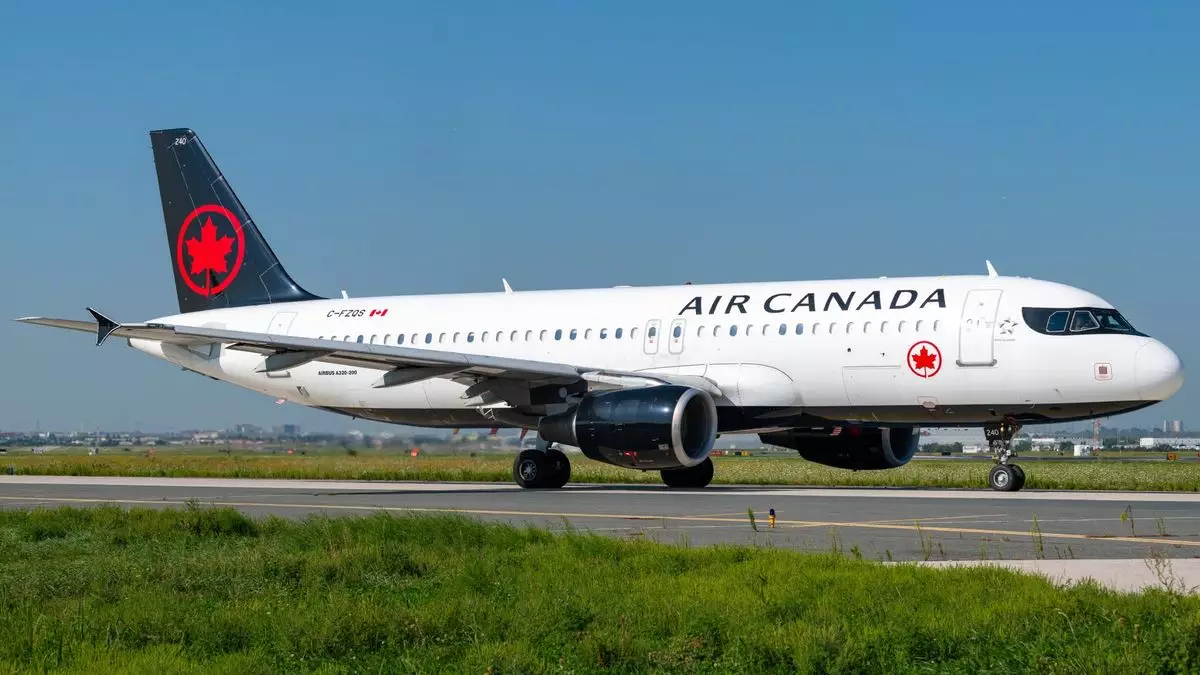Air Canada is currently standing at a precarious juncture in its negotiations with the Air Line Pilots Association (ALPA). The airline recently alerted the public that it may begin to scale back its operations as early as Sunday, contingent upon the issuance of a 72-hour notice for a strike or lockout by either ALPA or the company itself. Such notice could be legally enacted as early as September 15, following a mandatory 21-day cooling-off period, which ends on September 17. This situation raises significant concerns for consumers and the airline industry as a whole, signaling potential disruptions in air travel just as the summer season winds down.
The central issue of contention between Air Canada and its pilots revolves around wage negotiations. Air Canada contends that ALPA’s wage demands are far removed from the standard increases seen within Canadian industries. Despite this assertion, ALPA maintains a strong stance, arguing that the airline’s record profits and significant executive compensation should translate into better pay for pilots. Such disagreements leave passengers and stakeholders in a state of uncertainty and frustration as the deadlines loom.
Should a strike or lockout materialize, the ramifications would be extensive. Air Canada has estimated that about 110,000 customers could be affected daily, putting a vast number of travelers in a bind. The airline has already begun preparations for what they term a “wind-down” phase, which may involve the cancellation of vacation package flights and the grounding of certain aircraft even before formal announcements of strike action. This strategy is intended to ensure an efficient response to operational disruptions, but it simultaneously generates anxiety among travelers.
In light of potential flight cancellations, Air Canada is committed to providing affected ticket holders with refunds, although it forewarns that options for rebooking on alternative carriers may be limited. This acknowledgment reflects an acute awareness of the chaos that can ensue during abrupt airline stoppages, a sentiment shared by many frustrated travelers in recent weeks. The airline is attempting to mitigate fallout by coordinating with other carriers to accommodate passengers wherever possible, yet these solutions may fall short of customer expectations amid an operational crisis.
The ongoing struggle between Air Canada and its pilots raises vital questions about corporate responsibilities and ethical treatment of employees amid profitable times. Critics, such as Charlene Hudy, chair of ALPA’s Air Canada executive council, have vocally articulated concerns regarding what they label as corporate greed. The juxtaposition of Air Canada’s soaring profits against the backdrop of “below-market compensation” for its pilots has effectively heightened tensions. The polarizing nature of the negotiations spotlights broader issues regarding how airlines value their workforce and the implications for employee morale.
As passengers anxiously await resolution, it becomes crucial to consider that the welfare of employees is intrinsically linked to the quality of service provided to customers. Instances of labor unrest often culminate in diminished service levels and offer a stark reminder that corporate policies must align with the values of fairness and equity. In an industry where customer experience is paramount, the potential for a strike could serve to alienate a loyal customer base, ultimately affecting the airline’s reputation and bottom line.
In a bid to regain some control over the escalating situation, Air Canada has indicated its willingness to pursue governmental intervention, similar to actions taken with other recent labor disputes in Canada. The government’s role in mediating tensions between corporations and labor unions cannot be understated. By stepping in, the government could potentially foster dialogue and negotiations towards a more amicable solution, thereby averting a complete cessation of operations.
Looking ahead, Air Canada has made preemptive moves, offering flexibility for passengers with bookings during the anticipated strike window between September 15 and September 23. This heads-up illustrates the airline’s recognition of the potential impact on its clientele and signals an ongoing effort to manage customer relationships during turbulent times.
As the situation develops, it will be imperative for both Air Canada and ALPA to prioritize open communication and realistic negotiations to avoid the disruptive fallout that a work stoppage would cause. The unfolding events highlight the need for a concerted effort to bridge the widening gap between corporate interests and employee rights, ensuring that the final resolution paves the way for sustainable growth and mutual respect within the aviation sector.


Leave a Reply